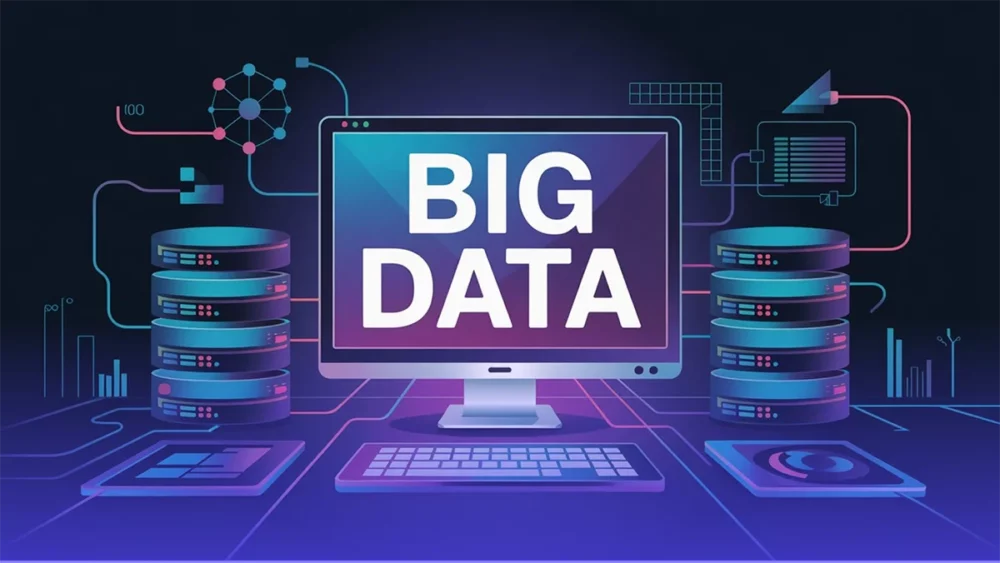BIG DATA in HR: A Revolution in Human Resource Management

Big data is like an information avalanche – seemingly endless, but when harnessed correctly, it reveals incredible treasures. HR teams that adopt smart analytical tools gain a competitive edge others can only dream of. So if you’re asking yourself questions like “What is big data?” or “How can big data be used in HR?”, you’re in the right place to find out!
What is Big Data and Why Should HR Managers Pay Attention?
Big data is not just a buzzword. In HR, big data refers to datasets so large and complex that traditional methods can’t efficiently analyze them. Thanks to modern big data analytics software, we can now structure, interpret, and turn this data into actionable steps.
In the HR realm, this translates into better recruitment, higher employee engagement, and more effective performance management. Companies leveraging big data analysis can predict turnover, increase productivity, and optimize work processes.
The Role of Big Data in HR: How It Can Transform Your Job
How exactly can big data analytics help HR professionals? Let’s look at the key areas where big data can offer the most value:
Smarter Recruitment Through Big Data Analysis
Forget intuition-based hiring. In the digital era, HR has become more sophisticated than ever, and big data and algorithms now play a central role in dramatically improving recruitment processes.
Big data queries allow you to analyze massive amounts of candidate data and determine who best fits a role. No more relying solely on gut feelings from interviews or limited CV information. Instead, you can base decisions on systematic data evaluation that reveals hidden patterns and insights.
Big data tools can analyze not only resumes but also social media profiles, personality assessments, and previous performance data. For instance, trends in candidates’ work histories may reveal behavioral patterns linked to past success. Similarly, data can predict whether a candidate is likely to stay long-term or leave quickly.
Another major advantage of using big data in recruitment is predicting future performance. Advanced analytics tools can model probable behavior of new hires based on historical data and compare them to top-performing employees within the company.
However, ethics and transparency remain paramount. It’s essential to ensure that data collection and usage comply with legal regulations and that candidates are clearly informed about how their data is evaluated. AI in recruitment should support, not replace, the human element.
Predicting Turnover and Boosting Employee Satisfaction
HR teams using big data audits hold a powerful tool for identifying hidden behavior patterns. By analyzing performance, feedback, attendance, or internal communication engagement, HR professionals can more accurately pinpoint factors leading to the departure of key employees.
Best of all? Instead of passively waiting for resignations, HR experts can use predictive analytics to take proactive measures—adjust working conditions, introduce motivational programs, or focus on team well-being. The result: lower turnover, happier employees, stronger company culture, and significant cost savings on recruitment and onboarding.
Boosting Performance with Big Data Analytics Software
Measuring and optimizing employee performance has never been easier—or more precise! With HR big data analytics, you can track key metrics like productivity, work efficiency, engagement levels, and feedback frequency. This gives you a clear view of where your team excels and where support is needed.
Big data helps identify both individual and team strengths and weaknesses and forecast performance trends. You can determine the conditions under which your people perform best, the tasks that most motivate them, or the leadership style they respond to most effectively.
Big Data Marketing: How to Attract and Retain Top Talent
Marketing plays a crucial role in HR—after all, every talented candidate is a bit like a customer who needs to be reached and convinced. Big data marketing adds a new dimension to recruitment by allowing personalized communication and targeting the right people at the right time in the right place.
Advanced candidate data analysis enables you to create more accurate personas—ideal candidate profiles tailored to your company’s needs. HR teams can better understand what motivates potential hires and which benefits appeal to them.
Enter personalized campaigns. Instead of generic job ads, you can craft targeted content for different talent groups. Some value flexibility, others career growth, and some team culture—and big data lets you show each candidate exactly what matters to them.
Effective Employee Training and Development
A data-driven approach isn’t just about hiring and performance—it’s also key for developing teams and strategic HR management. Big data helps HR identify employee skill gaps, assess team needs, and design targeted development plans that make a real impact.
Instead of generic training sessions with limited results, you can use data to recommend tailored learning programs for individuals. Advanced HR analytics also track the effectiveness of training and continuously optimize it to meet both current employee needs and long-term company goals.
The Future Belongs to HR Data Analytics!
Sloneek’s HR application brings a smart and intuitive approach to big data analysis in human resource management. With its advanced analytics tools, Sloneek helps you monitor employee performance, detect absence trends, analyze team workloads, and predict risks like key employee turnover. Instead of manually handling spreadsheets, you get clear reports and personalized recommendations that support real-time decision-making. With Sloneek’s HR data analytics, you can optimize processes, improve working conditions, and build a stronger company culture.





